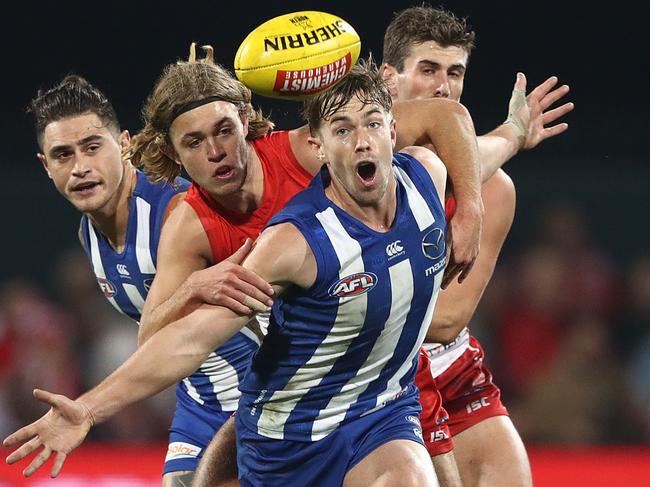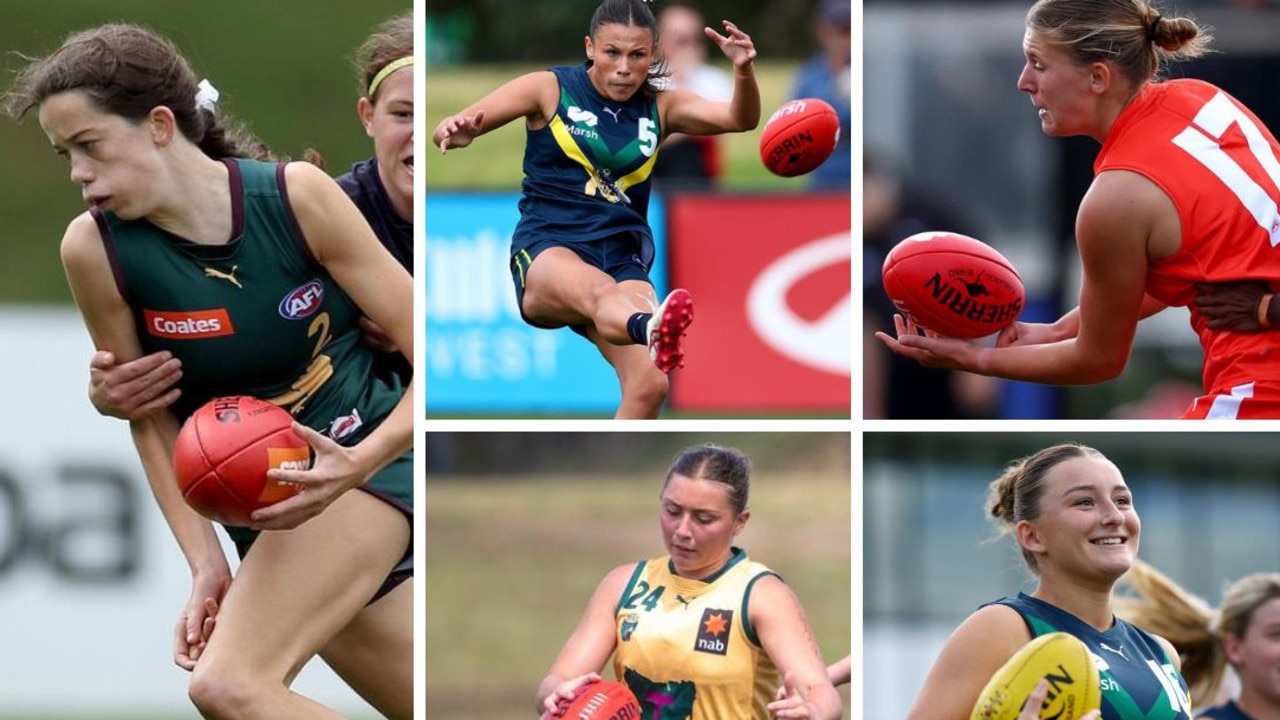Tasmania could play a key role in bold plan for AFL’s return
Hobart and Launceston are in consideration as possible hosts of “Olympic-style villages” to hasten the return of the AFL season.

AFL
Don't miss out on the headlines from AFL. Followed categories will be added to My News.
AFL players and staff would be housed in “Olympic-style villages” set up within regional hubs in a bold plan to restart the football season within two months.
News Corp can reveal new details about the AFL’s plan — dubbed Project Return — which would see hotels and resorts converted into strictly controlled villages within one or two regional hubs, and with players undergoing weekly coronavirus tests.
Hobart and Launceston, Darwin, Adelaide, Perth and the Swan Valley in Western Australia, Sydney and Canberra, and Melbourne and Geelong are the places being assessed as possible hubs. The AFL wants to set up the Olympic-style villages within these hubs, with players only leaving the villages for games, training and medical appointments.
AFL chief executive Gillon McLachlan has written to state leaders asking them to suggest appropriate properties. Each village would have its own medical centre and the ability to isolate anyone showing signs of COVID-19.
“In summary, the AFL’s current thinking is to establish quarantine zones, limit travel and reduce contact with the public by establishing an Olympic Village style model,” Mr McLachlan writes in one of the letters seen by News Corp.
“A ‘village’ will essentially consist of a hotel that is solely dedicated to the AFL industry, to enable the control of external people entering, ideally based on extensive grounds such as a golf resort or winery, that allows personnel to move around more freely in a quarantined zone without public interaction.”

Mr McLachlan has also outlined a rigorous isolation and testing regimen that would take place both before players travelled to the hubs, and after they arrived.
Players, staff and officials would be required to self-isolate for 14 days in their home city. They would then be required to take a coronavirus test before flying on a chartered plane to the hub.
Once there, they would be immediately placed in a hotel “village”, quarantined from the general public.
For the next three weeks they would undertake a weekly coronavirus test.
During their first week at the village, they would be allowed to congregate only in groups of two and would have to train alone. Group training would start at the beginning of the second week, including simulated match practice.
Away from official training, players would be allowed to mix only in groups of up to six.
At the end of the initial three-week quarantine period — being referred to by the AFL as the pre-season — matches would begin.
Players would be tested again before each match, and would only be allowed to play if they returned a negative test.
Anyone displaying coronavirus symptoms would be immediately tested and isolated.
The AFL would provide all of the testing equipment to ensure there was no impact or burden placed on the local health system.
The AFL hopes it can use the hub proposal to restart the competition by mid-June.
It is likely two hubs would be established, with 10 teams in one and eight in the other. After the initial three-week quarantine period, the AFL hopes it can then play up to 28 premiership matches within 35 days.


